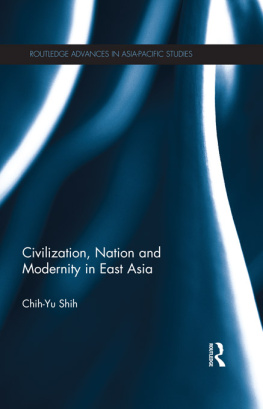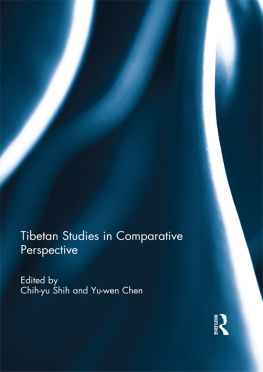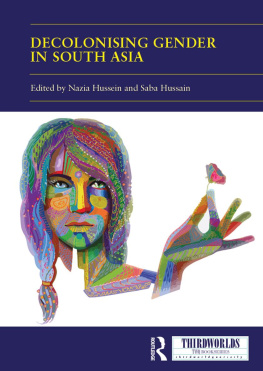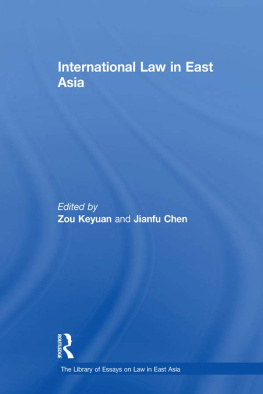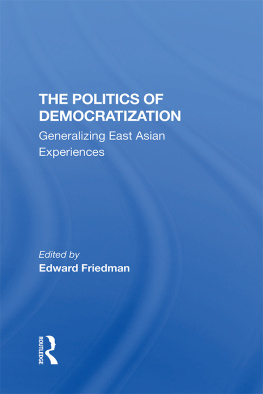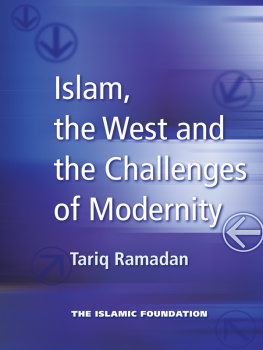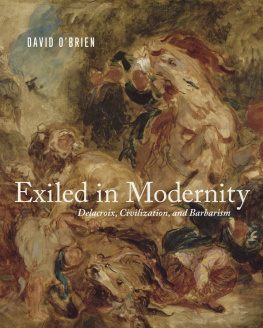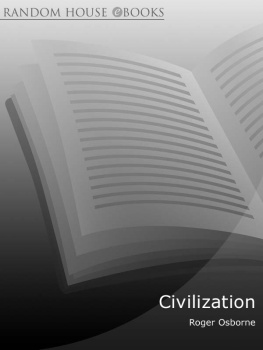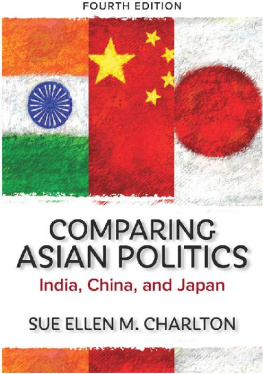Civilization, Nation and Modernity in East Asia
In this highly original, deeply probing, and imaginatively argued book Chih-yu Shih adds a singularly original voice to a vast chorus that, in both major and minor keys, is singing the hymns about the rise of China and the Asian century. Since the economic and military facets of power shifts can be decoded best through cultural lenses, Civilization, Nation and Modernity becomes an indispensable source for any serious student of East Asia.
Peter J. Katzenstein
Walter S. Carpenter, Jr. Professor of International Studies Cornell University
This book explores the crisis of self-confidence which has assaulted Asian countries since Western countries began to have a profound impact on Asia in the nineteenth century. Confronted by Western civilization and by modernity, Asian countries have been compelled to rethink their own identity, and to consider how they should relate to Western civilization and modernity. The result, the author argues, has been a redefining by Asian countries of their own character as nations, and an adaptation of civilization and modernity to their own special conditions. Asian nations, the author contends, have thereby engaged with the West and with modernity, but on their own terms, and in a way in which they retain their sense of self-respect, avoiding a sense of inferiority. Drawing on postmodern theory, civilizational politics, Confucian and other traditional Asian thought, and the actual experiences of Asian countries, especially China and Japan, the author demonstrates that Asian countries quest for a postmodern national identity is every bit as key a part of the rise of Asia as economic growth or greater international political activity.
Chih-yu Shih is Professor of Political Science at National Taiwan University.
Routledge Advances in Asia-Pacific Studies
| 1. | Environment, Education and Society in the Asia-Pacific |
| Local Traditions and Global Discourses |
| David Yencken, John Fien and Helen Sykes |
| 2. | Ageing in the Asia-Pacific Region |
| David R Phillips |
| 3. | Caring for the Elderly in Japan and the US |
| Practices and Policies |
| Susan Orpett Long |
| 4. | Human Rights and Gender Politics: Asia Pacific Perspectives |
| Edited by Anne Marie Hilsdon, Martha Macintyre, Vera Mackie and Maila Stivens |
| 5. | Human Rights in Japan, South Korea and Taiwan |
| Ian Neary |
| 6. | Cultural Politics and Asian Values |
| The Tepid War |
| Michael D. Barr |
| 7. | Social Policy in East and Southeast Asia |
| Education, Health, Housing and Income Maintenance |
| M Ramesh |
| 8. | Sino-Japanese Relations |
| Facing the Past, Looking to the Future? |
| Caroline Rose |
| 9. | Directors of Urban Change in Asia |
| Edited by Peter J.M. Nas |
| 10. | Education Reform and Education Policy in East Asia |
| Ka Ho Mok |
| 11. | The Strong and the Weak in Japanese Literature |
| Discrimination, Egalitarianism, Nationalism |
| Fuminobu MURAKAMI |
| 12. | Civilization, Nation and Modernity in East Asia |
| Chih-Yu Shih |
Civilization, Nation and
Modernity in East Asia
Chih-yu Shih
First published 2012
by Routledge
2 Park Square, Milton Park, Abingdon, Oxon OX14 4RN
Simultaneously published in the USA and Canada
by Routledge
711 Third Avenue, New York, NY 10017
Routledge is an imprint of the Taylor & Francis Group, an informa business
2012 Chih-yu Shih
The right of Chih-yu Shih to be identified as author of this work has been asserted by him in accordance with the Copyright, Designs and Patent Act 1988.
All rights reserved. No part of this book may be reprinted or reproduced or utilised in any form or by any electronic, mechanical, or other means, now known or hereafter invented, including photocopying and recording, or in any information storage or retrieval system, without permission in writing from the publishers.
Trademark notice: Product or corporate names may be trademarks or registered trademarks, and are used only for identification and explanation without intent to infringe.
British Library Cataloguing in Publication Data
A catalogue record for this book is available from the British Library
Library of Congress Cataloging in Publication Data
Shi, Zhiyu, 1958
Civilization, nation and modernity in East Asia / Chih-yu Shih.
p. cm. (Routledge advances in Asia-Pacific studies ; 12)
Includes bibliographical references and index.
1. National characteristics, East Asian. 2. East AsiaCivilization
Philosophy. 3. East and West. 4. National characteristics,
Chinese. 5. National characteristics, Japanese. 6. China
CivilizationPhilosophy. 7. JapanCivilizationPhilosophy.
I. Title.
DS509.3.S445 2012
950dc23
2011048341
ISBN: 978-0-415-52426-1 (hbk)
ISBN: 978-0-203-11799-6 (ebk)
Typeset in Times New Roman
by RefineCatch Limited, Bungay, Suffolk
Introduction
Asian betweenness: the civilizational nation and national civilization
How to be a nation state has remained a constant puzzle for the Chinese as well as Japanese civilizations since the arrival of modernity in East Asia. The question used to be one of learning, understanding, and self-transformation. Only when the mission of transformation has evolved into one of assertion do the two civilizations realize that the ultimate challenge still lies ahead. This is the first global moment in which the two nation states appear on the world stage as a global power. For Japan, the global moment occurred at the turn of the century, emerging victoriously from the 1895 war on China and the 1905 defeat of Russia. For China, this transpired almost a century later after the dramatic year of 1997, witnessing the demise of the last revolutionary leader Deng Xiaoping, cleansing of colonial shame through the Hong Kong handover, final completion of socialist thought reform, and triumphant survival from the Asian financial crisis. It is at the global moment that the two states, together with other actors on the world stage that must engage their rise, have to decide in the ultimate challenge if their final entry into world politics should represent a different ontological configuration for international relations dominated by major power politics.
The ultimate challenge is inevitable at the global moment for psychological and political reasons. Psychologically, past civilizations in East Asia considered backward during the grand self-transformation regain their exterior attraction along with the rise of national power. First, there exists the drive to redeem the lost self-respect by constructing a positive self-image embedded in the glorious civilizational past. There is conviction that current success of the nation state to achieve the world status benefits from the strength provided by the great civilizational past. Accordingly, there is the urge to demonstrate that the newly acquired status is not achieved at the sacrifice of extant civilizational traits. Identity politics that asserts civilizational difference to meet these psychological necessities unavoidably challenges the meaning of being a nation state. Both Japan in the beginning of the 20th century and China in the 21st century appear as a threat to international relations due to their civilizational estrangement.

